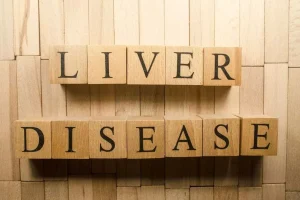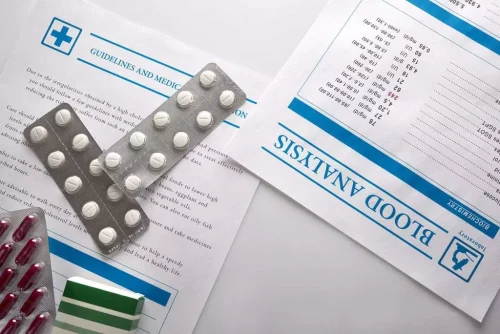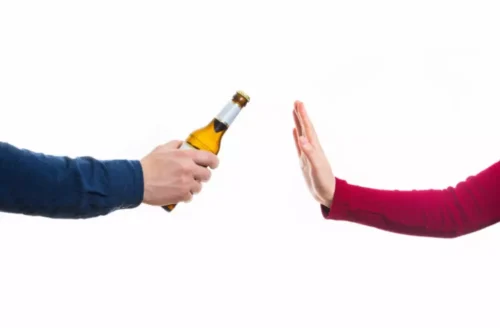
There are many routes you can take in starting up the sobriety conversation with those closest to you. Below are a few tips for getting started from our mental health experts. Hangover effects can cause you to miss out on even more of your life because you’re sick or in bed and unable to do the things you love or interact with the people in your life that you care about. Hangover symptoms including nausea, vomiting, headaches and brain fog can last for days in some cases and can diminish your quality of day-to-day life.

Embrace the Joys of Sobriety
- Just because you’re alcohol-free doesn’t mean you can’t enjoy a delicious beverage!
- The knowledge that you are putting distance every day between yourself and problematic past behaviors.
- While making the decision to be sober was the best thing I’ve ever done, it’s also one of the hardest.
- For years, I toyed with the idea but couldn’t ever seem to do it until my drinking started to keep me up at night.
- The benefits of being sober include real relationships and experiences that you might otherwise miss out on, along with many other good reasons to be sober.
- Many will organize substance- and alcohol-free events to help fill members’ evenings and weekends.
- Hangover symptoms including nausea, vomiting, headaches and brain fog can last for days in some cases and can diminish your quality of day-to-day life.
Call someone, journal or use a mindful drinking app like Sunnyside. Sometimes avoiding alcohol can seem impossible, but staying sober gets “exponentially easier” over time, he said. Focus on the positive aspects of socializing without alcohol, such as clear-mindedness, better sleep, improved health, and the ability to fully experience and remember moments with friends. Embracing sobriety can lead to a more authentic and fulfilling social life.
Q. How can I manage stress and anxiety without turning to substances?
But that doesn’t mean the path is easy—It’s normal for people to struggle for a while with finding joy in recovery. Things may feel drab without alcohol, and you may feel directionless. You may also be dealing with consequences from the period when you were drinking, and sometimes struggling to see the light at the end of the tunnel. Making new friends is the most difficult part for people who want to quit drinking and lead a sober social life. If you’re lucky, you’ll have other things in common with your old drinking buddies besides getting drunk. Even if your friends support your sobriety, things will be different because a major part of your social life is different.
- Other definitions, however, focus on the process of recovery and coping habits that support health and wellness over the long term.
- For instance, you can still go to concerts, weddings, family gatherings, and restaurants, and have a great time there.
- Getting involved with volunteering can give you a sense of purpose and connection, and makes it easier to say no to alcohol.
- This is a great way to have fun and jump into a new world while maintaining your sobriety.
- Sobriety can help you regain control of your life and achieve your goals.
- You can try different meetings for the different groups to find one that’s right for you.
Ability to Cope with Hardships
- At Gateway Foundation, we take the time to understand the triggers keeping you from staying sober.
- You may even ask a trusted friend, partner, or recovery ally to facilitate or join you for the chat.
- Seeking help is a sign of strength, and there are resources available to support you on your journey toward sobriety.
- Your sleep patterns may be altered and you may not think about eating healthy when you’re under the influence.
Exploring new and diverse activities can provide alternative avenues for socializing, creating memories, and connecting with others. Before attending a social event, remember why you chose not to drink alcohol. Establish clear intentions and goals for the gathering, such as connecting with others, having meaningful conversations, or simply enjoying the company. Setting goals can help you get the most out of the gathering and navigate tricky situations. Have an exit strategy if needed, such as checking the nearest bus stop, pre-booking transport, or calling upon a sober friend. Sometimes I feel like sobriety’s Andy Rooney – the ironic, curmudgeon of the blogging set, pointing out the pitfalls and snafus that no one else will tell the world about quitting drinking.
Q. How can I find purpose and fulfillment in my life without relying on drugs or alcohol?
Depending on the type of dependency, PAWS can last from six months to two years after you stop using drugs or alcohol. Beyond relief, you may also feel some mental clarity, emotional peace, and even a sense of pride for outwardly embracing your recovery, Stone adds. The idea of sobriety can feel boring or lame, and like it’s only an option for someone who’s hit rock bottom and had to become sober because they had no other choice. Most deeply, enjoy relating to the world and to your life not gripped at the throat by desire.

So your bold, life-improving decision to not drink will mean changes almost everywhere you look. Here are some surprising (and not-so-surprising) occurrences that will inevitably happen to your relationships, your identity, even your free time, and how I’ve learned to deal with each one. The life I had before I quit drinking was a lot like Groundhog Day; I was always waiting for it to begin and always reliving the same stuff, day after day, year after year. I can honestly say sobriety is the best thing I have ever done for myself. It was my jumping-off point into a life I knew I had buried inside of me.
Organize a game or puzzle night
- Prioritizing self-care is important in maintaining emotional well-being and reducing the risk of relapse.
- “The benefit of disclosing to loved ones is determined by the sober person and informed by their specific circumstances,” says Jackson.
- Addiction can also damage your relationships with your loved ones and cause you to lose your job or face other negative consequences.
- If you’re eager to open up about your sobriety but aren’t sure where to start, read on to find some helpful tips from mental health professionals.
Whether it’s in the form of going to the beach, a lake, or into the woods for a hike, there are so many different ways to experience the joy of nature. Hanging out in nature solo can also be incredibly therapeutic and restorative to your spirit. Spending time and connecting with like-minded people is an important part of the recovery process, just as much as finding activities to do that don’t revolve around substance use. Sober fun can sound like an impossible reach when you’ve used drugs and alcohol for so long that you don’t know what life looks like without them. Engaging in new and enjoyable activities provides a sense of fulfillment and can replace the time and energy previously spent on substance use. It includes developing healthy coping mechanisms, emotional resilience, and addressing underlying emotional issues that may have contributed to addiction.

Addiction Treatment Programs
This aspect refers to the abstinence from substances that alter one’s state of consciousness, such as alcohol or drugs. Once you can understand these and learn to internalize them in your daily life, saying no to a drink from your friends will be easy. Before giving up alcohol, reasons to stay sober I didn’t think most places carried a brand of non-alcoholic beer. As long as you tip normally, bars are happy to serve it because It’s one less person likely to act like an asshole. The less appealing drinking becomes, the less time you want to spend around drunk people.

That often leads to being unable to see or enjoy the good as well. We hear a lot about practicing mindfulness, not just in the recovery community but in mental health in general. Practicing mindfulness means that you’re focused on the present moment and enjoying it for all that it is, rather than thinking about the past or the future. Life after addiction allows you to feel more in control of your activities and your relationships.
